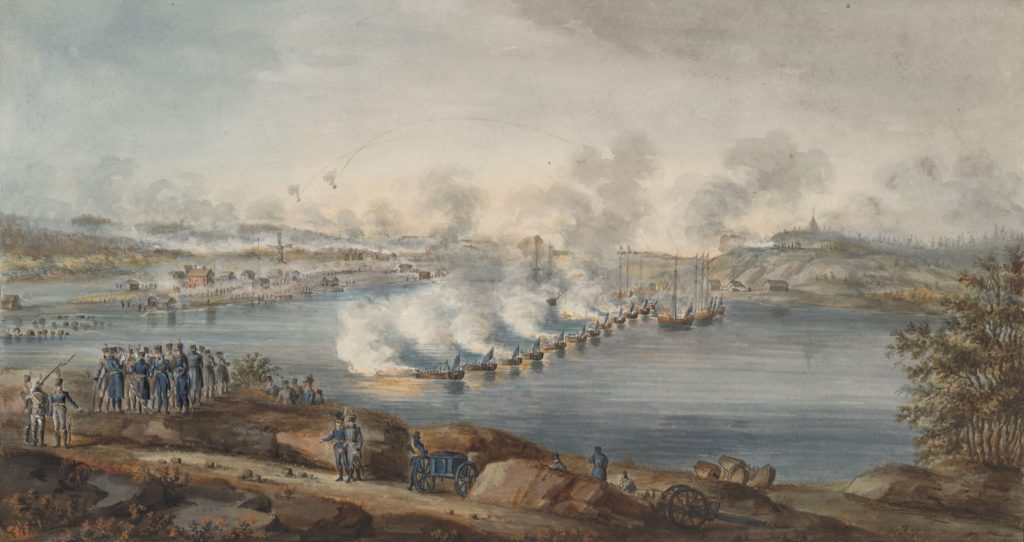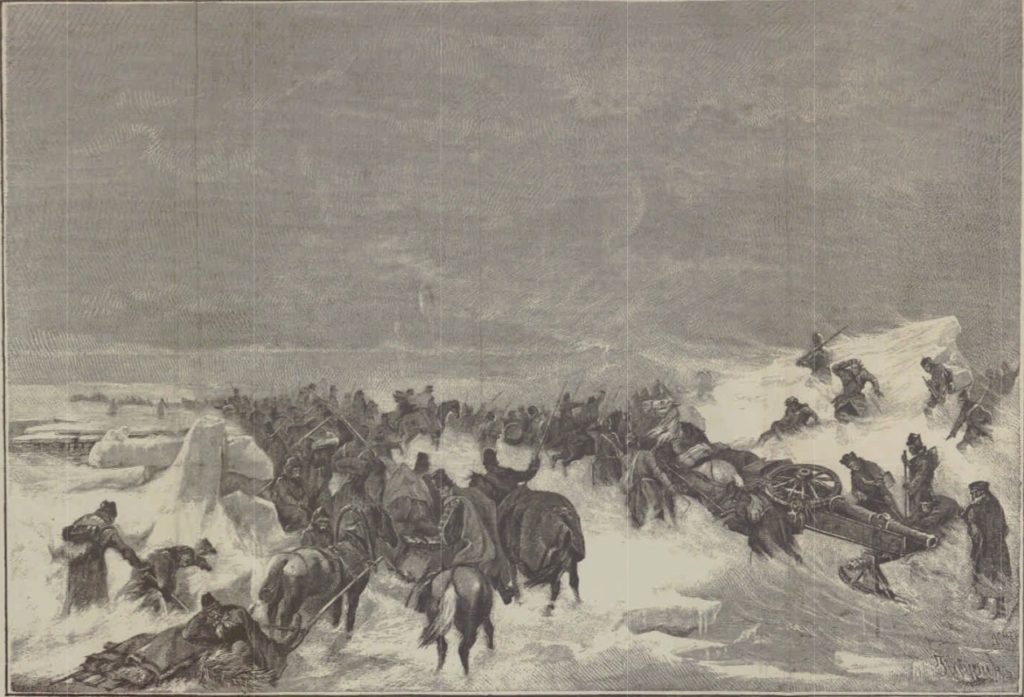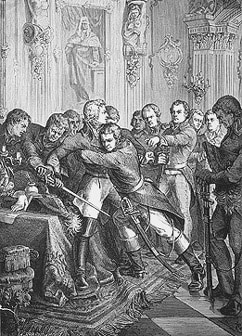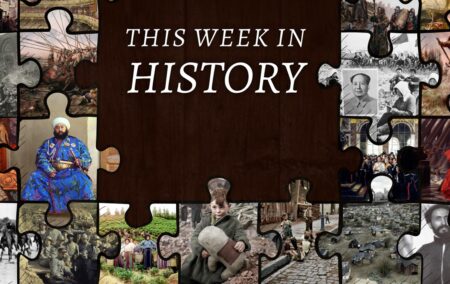This Week in History recalls memorable and decisive events and personalities of the past.
21st February 1808 – Without declaring war, Russian troops cross the Swedish border at Abborfors in eastern territory of Finland, thus beginning the Finnish War, in which Sweden will lose Finland to Russia.

The area that is now the country of Finland has been inhabited by Finno-Ugric peoples since possibly the Bronze Age (3200-600 B.C.). Of most of the history of Finland we know very little, only having small amounts of archaeological information to go on. Finland entered history more firmly when it began to trade and interact more often with its Scandanavian and Baltic neighbours.
During the Middle Ages the Swedes slowly began to conquer the various Pagan tribes who inhabited Finland and settle the region, which gradually came under the control of the Swedish crown and the Catholic church. The Finns themselves were either assimilated into Swedish language and culture or were pushed out of the elite until only peasants, lower clergy and local courts spoke Finnish. During the reformation the Finns converted to Protestantism along with the Swedes.
In the 18th century Finland became the site of battles between their Swedish overlords and the rising power of the Russian empire. Parts of Finland were occupied by Russian troops twice during the 18th century, once during the period known in Finland as the Greater Wrath (1714-1721) and again during the Russo-Swedish war of 1788-1790.
As the balance of forces moved in Russia’s favour, the Russian Tsars sought to make Finland a part of Russia.
In the early 19th century, Europe was caught in a titanic struggle between Napoleonic France and Britan. In 1807, after a series of victories against the powers of Europe, Napoleon sought to strangle British trade through a system of blockade, called the Continental System. Russia allied with Napoleon in 1807 and tried to force Sweden to stop supporting Britain and agree to the blockade and close the Baltic sea to all foreign ships. The Swedes refused.
Denmark and Russia colluded to break Swedish power and decided to attack Sweden together. On 21 February the Russian army crossed the border into Finland without declaring war. The surprise attack forced the Swedes to abandon their border defences and fall back in the face of the Russian invasion.
Initially the Russians overwhelmed the Swedish forces and pushed deep into Finland, but were thwarted by Finnish guerrilla fighters attacking their forces, and by a powerful Swedish counterattack which stopped the Russians at the Battle of Siikajoki.
Much of the fighting took place at sea, as the Swedish navy – backed by the British – fought the Russians for control of the Finnish coast. In July and August of 1808, the Russians received significant reinforcements and now went on the offensive again.

By 1809 the Russians had overrun most of Finland and, during the winter of 1808, the Russians had even marched across the frozen sea in the Gulf of Bothnia to invade Swede by land.
Angry at their king for the defeat, the Swedes overthrew King Gustav IV and replaced him with his uncle, Charles XIII. The new king sought peace terms.

While the Russians had won the war on land, with British help the Swedes had won the war at sea, and so when the sea ice melted in summer the Russians would be on the backfoot once again.
However, even with the stress of British and Swedish naval dominance, the Russians managed to defeat the Swedish army in Sweden proper.
The war was formally ended with the signing of the Treaty of Fredrikshamn in September 1809, which ceded all of Finland to Russian control. The Russians would establish the autonomous Grand Duchy of Finland under the rule of the Tsar, and would rule Finland until it declared independence during the Russian civil war in 1919.
If you like what you have just read, support the Daily Friend

